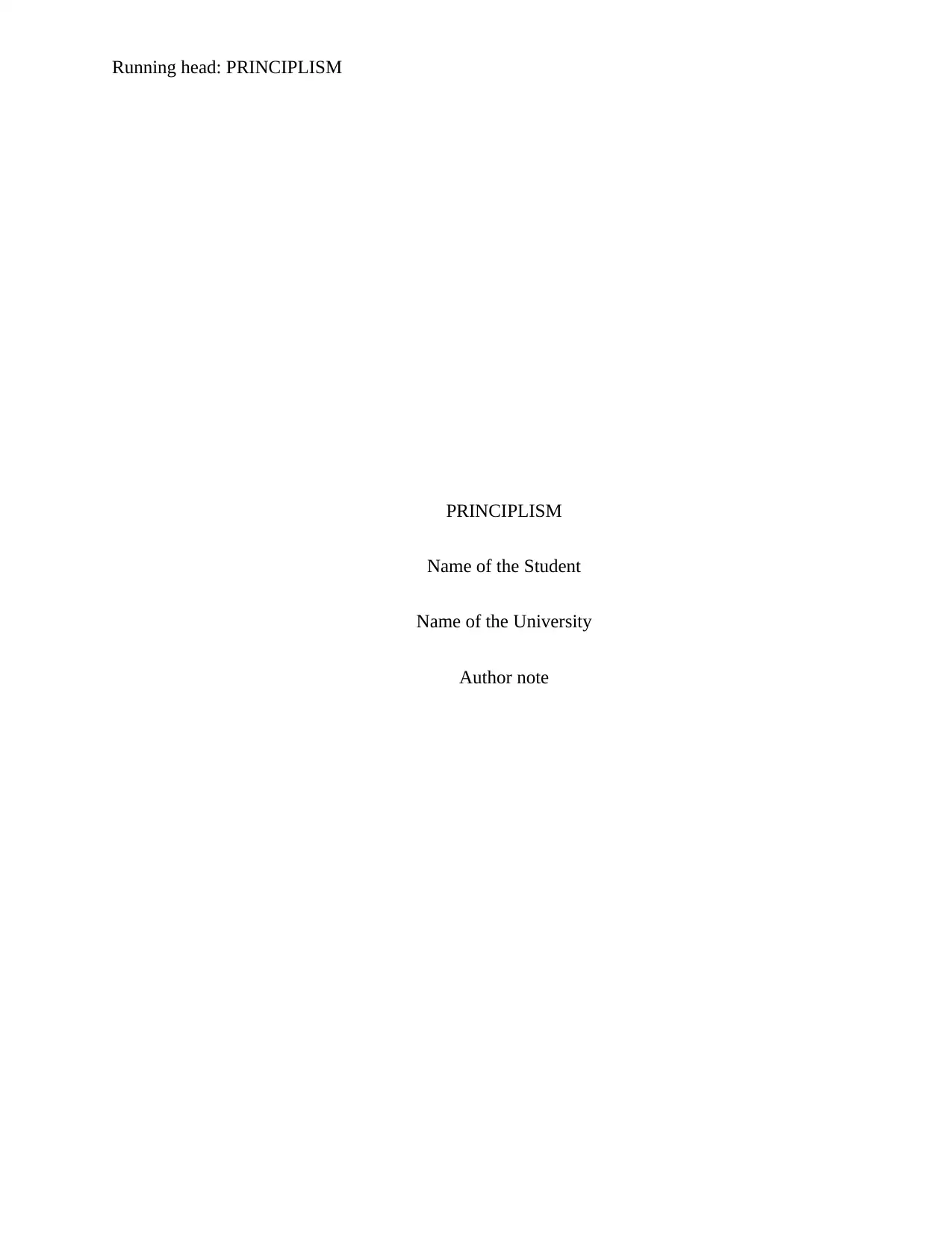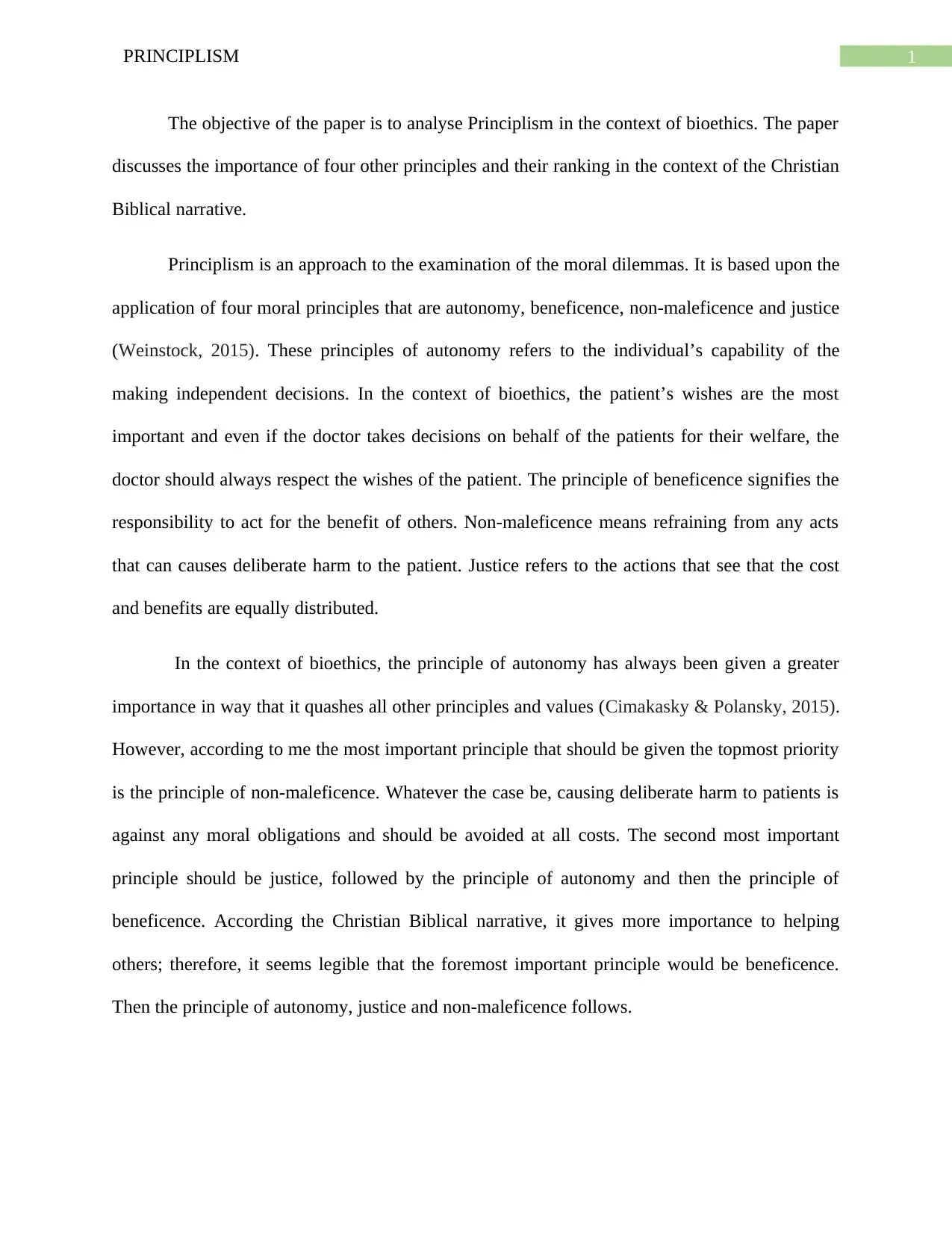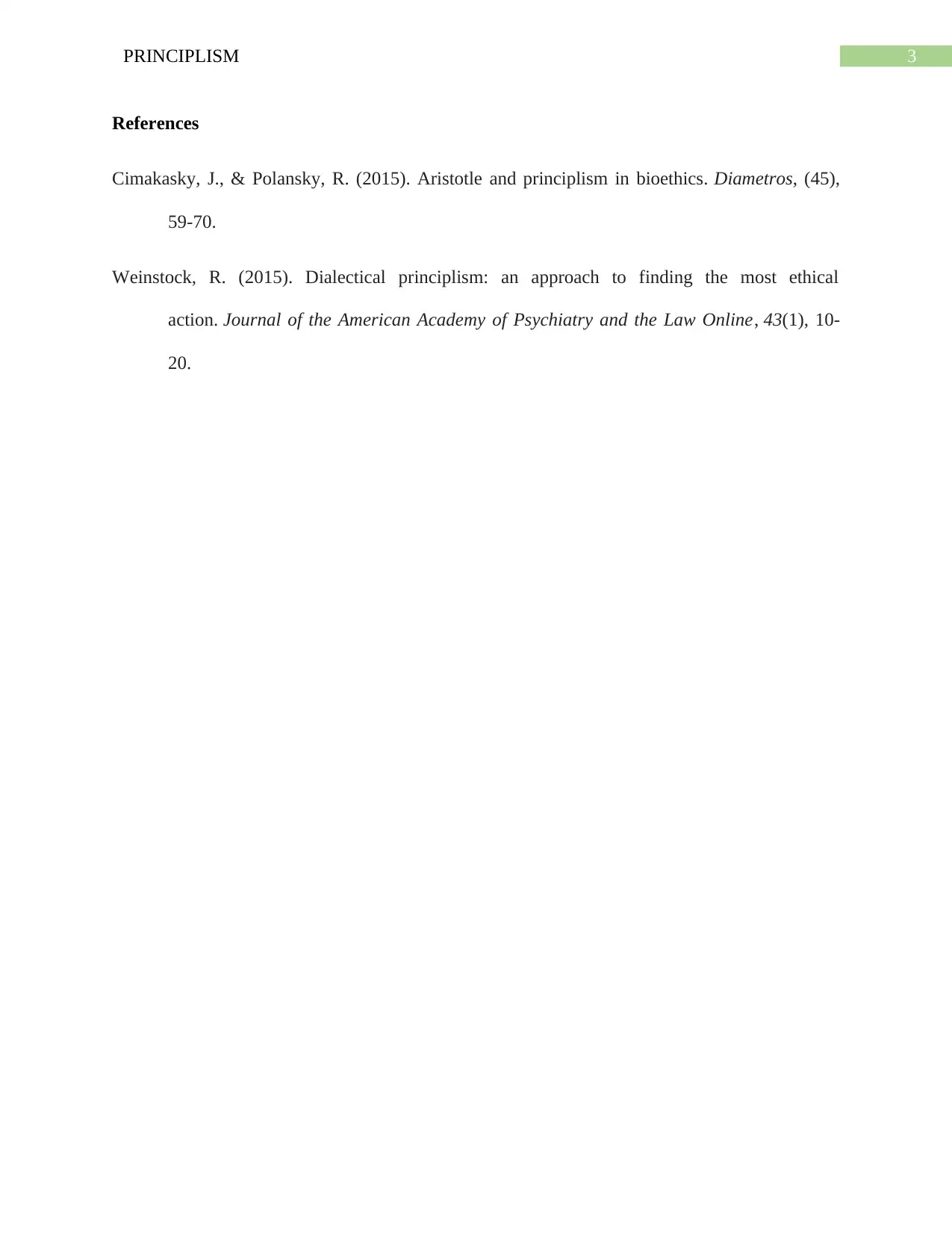Principlism in Bioethics: Autonomy, Beneficence, and Moral Dilemmas
VerifiedAdded on 2022/08/19
|4
|440
|11
Essay
AI Summary
This essay provides an analysis of principlism within the context of bioethics, focusing on the application and importance of four key moral principles: autonomy, beneficence, non-maleficence, and justice. It discusses how autonomy, the principle of individual decision-making, is often prioritized in bioethical discussions. However, the author argues for the primacy of non-maleficence, emphasizing the importance of avoiding deliberate harm to patients. The essay also explores the ranking of these principles, suggesting a hierarchy of non-maleficence, justice, autonomy, and beneficence. Furthermore, it contrasts this ranking with the values presented in the Christian Biblical narrative, which prioritizes beneficence. The essay concludes by asserting the equal importance of all four principles and advocating for their appropriate consideration in both medical practice and ethical decision-making, highlighting the need for balance in the application of each principle for the well-being of patients and the guidance of doctors.
1 out of 4











![[object Object]](/_next/static/media/star-bottom.7253800d.svg)